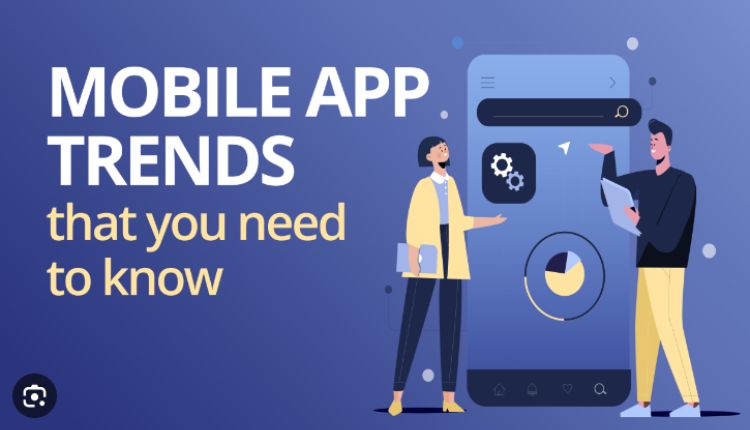In today’s rapidly evolving digital landscape, the world of app development is experiencing a profound transformation. As emerging technologies continue to shape the way we interact with our devices and the internet, the future of app development holds great promise and potential. From artificial intelligence and augmented reality to blockchain and the Internet of Things, a plethora of innovative technologies are revolutionizing the way applications are built and experienced.
This article delves into the exciting realm of app development and explores the emerging technologies and trends that are set to redefine the industry. By understanding these advancements, developers, entrepreneurs, and technology enthusiasts can gain valuable insights into the future direction of app development and stay ahead of the curve in this dynamic and ever-changing field.
Emerging Trends in App Development: Shaping the Future of Mobile Experiences
In the realm of application development, new trends are constantly emerging, reshaping the landscape and driving innovation. These trends reflect the evolving needs and expectations of users, as well as advancements in technology. By staying up-to-date with these emerging trends, developers can stay at the forefront of the industry and deliver cutting-edge applications that captivate and engage users. Here are some of the most prominent emerging trends in application development.
1. Progressive Web Apps (PWAs)
Progressive Web Apps (PWAs) have gained significant traction in recent years, blurring the lines between traditional websites and native mobile applications. PWAs are web applications that leverage modern web technologies to offer an app-like experience directly from a browser. They are fast, reliable, and offer offline capabilities, making them an attractive option for businesses looking to deliver seamless experiences across platforms. With features like push notifications, background data syncing, and home screen installation, PWAs provide users with a native-like experience without the need to download and install a separate app.
2. Cloud-Native Architecture
As cloud computing continues to evolve, app developers are increasingly adopting cloud-native architectures to build scalable and resilient applications. Cloud-native development embraces the principles of microservices, containerization, and orchestration tools like Kubernetes. By breaking down applications into smaller, independent services, developers can achieve greater agility, scalability, and fault tolerance. Cloud-native architectures also enable seamless integration with cloud services, allowing developers to leverage AI, machine learning, and big data analytics to enhance app functionality and user experiences.
3. Low-Code/No-Code Development
The rise of low-code and no-code development platforms has democratized app development, allowing individuals with little or no coding experience to create functional applications. These platforms provide a visual interface and pre-built components that enable developers to drag and drop elements to create applications quickly. Low-code/no-code platforms reduce development time, empower citizen developers, and foster collaboration between business stakeholders and IT departments. This trend opens up new possibilities for innovation and allows organizations to rapidly prototype and deploy applications, accelerating time-to-market.
4. Voice-Enabled Interfaces
Voice-enabled interfaces have gained immense popularity with the widespread adoption of smart speakers and virtual assistants. As natural language processing and voice recognition technologies continue to improve, integrating voice commands and conversational interfaces into mobile applications has become a growing trend. Voice-enabled interfaces offer hands-free interactions, personalized experiences, and can enhance accessibility for individuals with disabilities. From voice search and voice commands to voice-based transactions, voice-enabled interfaces are transforming the way users interact with mobile apps, providing convenience and a more immersive user experience.
5. Augmented Reality (AR) and Virtual Reality (VR)
AR and VR technologies have the potential to revolutionize mobile app experiences by merging the digital and physical worlds. AR overlays digital content onto the real world, while VR immerses users in virtual environments. From gaming and entertainment to education, healthcare, and e-commerce, AR and VR offer endless possibilities. App developers are exploring ways to incorporate AR and VR capabilities into their applications, creating interactive and engaging experiences. With advancements in hardware and software, such as Apple’s ARKit and Google’s ARCore, AR and VR technologies are becoming more accessible and are set to become mainstream in the coming years.
6. Blockchain Integration
Blockchain technology, initially associated with cryptocurrencies, is now finding its way into various industries, including app development. Blockchain offers a decentralized and transparent way to secure data and transactions, ensuring privacy, immutability, and trust. App developers are leveraging blockchain to build secure and tamper-proof applications, particularly in sectors such as finance, supply chain, healthcare, and identity verification.
Conclusion
As we navigate the ever-evolving landscape of app development, it is clear that the future holds immense potential for innovation and transformation. The emerging technologies and trends discussed in this article are just a glimpse of what lies ahead. From progressive web apps and cloud-native architectures to low-code development, voice-enabled interfaces, augmented reality, virtual reality, and blockchain integration, the possibilities for creating immersive, seamless, and secure mobile experiences are expanding rapidly. By staying informed and embracing these emerging trends, developers can shape the future of app development, offering users exciting and transformative experiences that enhance their lives in ways we may have never imagined. The future
